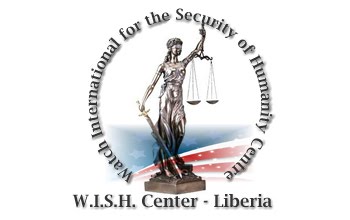By President Ellen Johnson Sirleaf
Americans are an extraordinarily generous people. As president of Liberia, I have seen firsthand the benefits of this generosity.
From 1980 through 2003, my tiny West African nation was engulfed in conflict that left our infrastructure and economy in tatters. Many of our children missed out on an education, and we still suffer from a critical skills shortage. For nearly 25 years, our judicial system was weak. We have had to tackle a massive external debt and reestablish the rule of law and sound governance.
Even now, eight years after our civil war ended, Liberia faces a huge uphill battle. Even though we have achieved economic growth averaging 7.2 percent since 2006, the basic needs of some 60 percent of our population remain unmet. Our mining, forestry and agricultural sectors are expanding, but rebuilding a broken country is a daunting task.
With support from the United States, we have been able to make progress. Thanks to our partnership with the American people, we are rebuilding roads, clinics, and schools, and expanding access to electricity, water, and sanitation. It is critical that this aid continues in next year’s budget.
By investing in basic services, Liberia is improving the health of our people, especially mothers and small children. The United States is a major supporter of these services, including greater access to clean water and sanitation. Contaminated drinking water has greatly affected Liberia. Worldwide, diarrhea is a leading cause of death in children under age 5, killing more than 4,000 children a day. Unsafe water and poor sanitation cause 80 percent of all illnesses in countries like mine.
Throughout Africa, according to the World Health Organization, as much as one-fifth of the population, including more than one-third of those in rural areas, lack access to “improved” sanitation facilities, defined as a pit latrine or better. Twenty-five percent of those in rural areas have no facilities whatsoever. Disease spreads easily in such conditions.
Clean water and sanitation are vital for improving global health and education. Children cannot attend school when sick from diarrhea, repeated episodes of which result in malnutrition and impaired cognitive function. Millions of women are kept out of basic work, such as growing food, because they spend hours each day collecting water and caring for children sick with water-related diseases. Women also suffer acutely from the indignity and risk of attack associated with the lack of access to privacy to perform bodily functions.
Development of basic infrastructure is enabling Liberian women to participate more in society, a key to improving our nation’s stability. Basic infrastructure improvements are also enabling children to make the most of their education. Only with an educated populace will Liberia be able to end the cycle of poverty, stay healthy and compete in the global economy.
President Obama has rightly focused his Global Health Initiative on doing more of what we know works. Basic services such as providing clean water and sanitation play a major role in preventing and stemming outbreaks of other diseases and in improving nutrition. Aid spent on such services has been shown to be among the most cost-effective ways to advance health and development.
Three years after the global economic crisis hit, Americans are living with painful consequences. Liberia received $172 million in U.S. aid in 2009. In times of national belt-tightening, it is, of course, right to question how hard-earned tax dollars are being spent. Americans can rest assured that the generous aid they have provided to my country and others is paying off in saved lives, increased productivity and political stability.
Indeed, on a June visit to the United States, I met with congressional leaders and administration officials to make the case for sustained foreign assistance to Liberia. I explained that we are not seeking an open-ended commitment but, rather, support in the next few years of our transition. I am confident that such aid would, within a decade, allow Liberia to sustain its own development and end its need for foreign aid. Should Liberia stay on the path my government is charting, it will join the ranks of middle-income countries by the year 2030.
Like most other developing countries, Liberia aspires to outgrow the need for aid. We look forward to a day when our economy thrives, when our children no longer suffer from preventable diseases and when the women of our country can move beyond mere subsistence and have genuine opportunity.
That day has not yet come. But American aid is helping us get there.
The writer is president of the Republic of Liberia and WaterAid’s goodwill ambassador for water and sanitation in Africa.

No comments:
Post a Comment